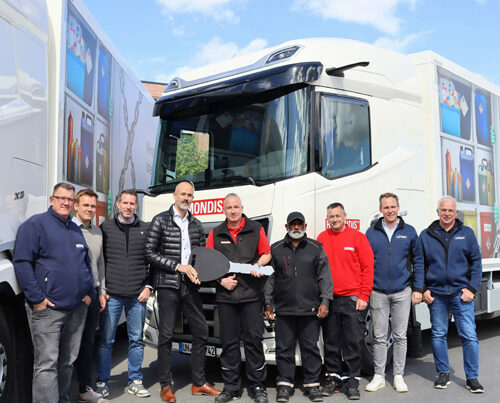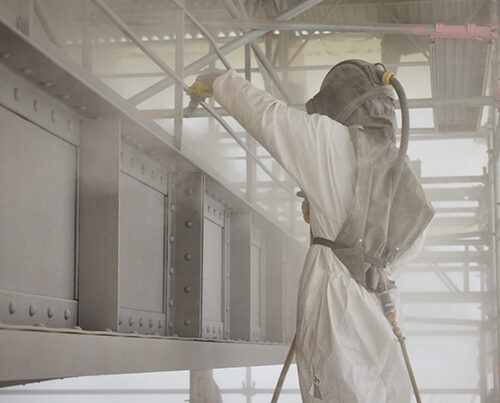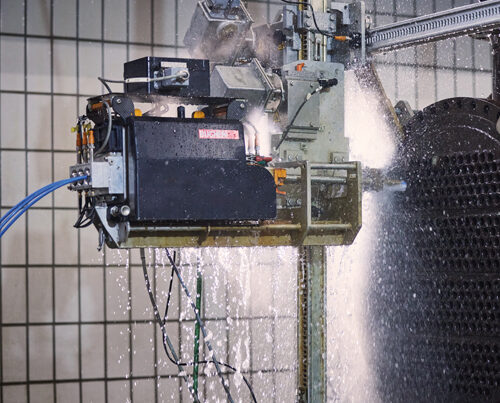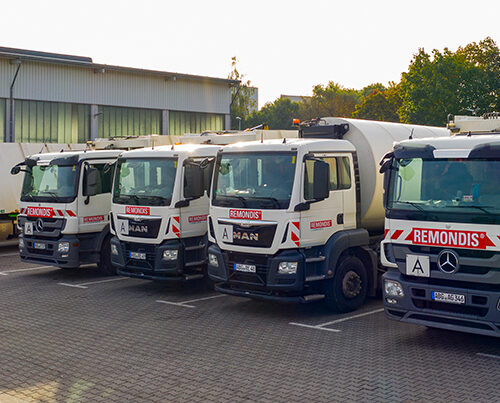Hotel chain put to the test
Earlier this year, Deutsche Hospitality had its Sustainability Certificate renewed for all of its German hotels. REMONDIS acted as the certifying body for this process. We talked to Lars Wahnschaffe, the hotel group’s sustainability manager, about this certificate and its role in the company’s sustainability strategy.


REMONDIS AKTUELL: It has been ten years now since Deutsche Hospitality launched its pilot environmental management project in Berlin. What have you achieved since then and how have things changed?
Lars Wahnschaffe: To begin with, it was seen more as being a tool to grow environmental awareness in our hotels and among our staff – for example to improve the way the different waste streams were separated. Nowadays, though, it has gone far beyond being simply an environmental management tool and has become part of our comprehensive sustainability strategy.
REMONDIS AKTUELL: A success story then. What have you learned from all of this?
Lars Wahnschaffe: Well, it’s most certainly been a success story! As soon as the pilot environmental management certification project had been completed, we then gradually rolled it out across the whole of Germany and professionalised waste management in our hotels with REMONDIS’ Sustainability Certificate. To start off with, though, the system was implemented separately in one location after the other. This allowed the hotels to adapt the system to their local circumstances and to take the time they needed. This meant that we were able to add REMONDIS’ accreditation to our environmental management system in 2012.
REMONDIS AKTUELL: What benefits do you think it offers?
Lars Wahnschaffe: We can use the certificate as an additional control and standardisation tool as well as to compare the progress we have made. More and more of our stakeholders expect us to deliver such transparency.
REMONDIS AKTUELL: What has the response of your staff been to the changes that have had to be made for the certification process?
Lars Wahnschaffe: Training courses are very important here and REMONDIS has given us great support in this area. The local management team in each hotel is responsible for this and they can appoint one of their employees to carry out this work as the local officer. So the courses are held at local level and more recently as e-learning as well. The next step is to pass on this knowledge to the housekeeping staff. In this case, it’s a question of knowing which waste goes in which bin. The local managers must work out for themselves what the best way is to ensure the system is implemented correctly.
REMONDIS AKTUELL: And what things have actually been changed in your hotels?
Lars Wahnschaffe: Our guests can now segregate their waste in our meeting rooms. The next step will be to find a smart way to enable them to do this in the bedrooms as well. Sorting the waste after the guests have left is not an option as it’s simply not hygienic – especially the bins in the bathrooms. We’ve considerably reduced the amount of paper in our rooms by offering digital brochures and magazines.
REMONDIS AKTUELL: It’s not just a question anymore of simply doing something for the circular economy now though, is it? You’ve also got some concrete sustainability goals as well…
Lars Wahnschaffe: People’s understanding of what sustainability is all about has clearly changed over the last few years. We now talk about our carbon footprint as a company, have sustainable supply chains and focus on social and socio-political requirements besides environmental issues. As regards our key customers – and indeed the capital market – this is certainly a USP that gives us a competitive edge and is one that is becoming ever more important …
REMONDIS AKTUELL: So, with this in mind, how would you sum up the Sustainability Certificate?
Lars Wahnschaffe: The Sustainability Certificate is a really useful tool not only to measure how a company has improved its carbon footprint but also to help those involved move towards greater sustainability. A great starting point, therefore, with the potential for more.
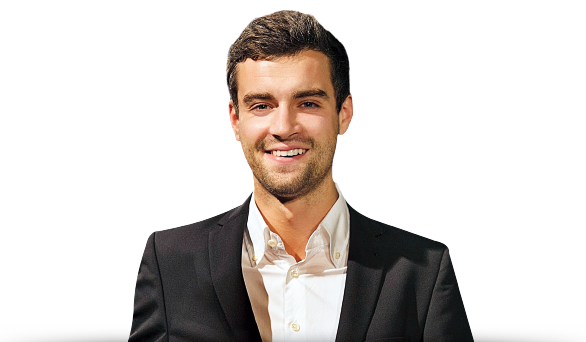
Lars Wahnschaffe is head of the Corporate Social Responsibility team at Deutsche Hospitality’s head office. The hotel chain unites five hotel brands under one roof: Steigenberger Hotels and Resorts, Jaz in the City, IntercityHotel, MAXX by Steigenberger and Zleep Hotels. Deutsche Hospitality has more than 70 hotels in Germany
Sustainability Certificate
REMONDIS’ Sustainability Certificate is the only tool available in this form that enables a company’s efforts towards preserving natural resources and curbing climate change to be measured and certified. Each individual type of waste and the way it is stored, transported and recycled are taken into account to calculate and document to what extent primary raw materials are preserved and energy consumption and carbon emissions cut. At the end of the process, the company is presented with their Sustainability Certificate – giving them a document that certifies their sustainability efforts and also shows them where there is still room for improvement.
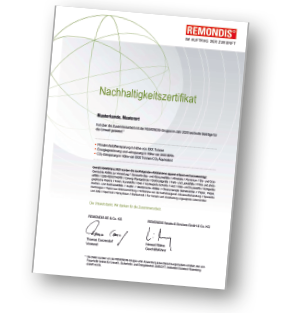
Image credits: image 1: Adobe Stock: 244656043, creator: idarts; image 2: Adobe Stock: 169086447, creator: Chinnapong; image 3–4: © REMONDIS








